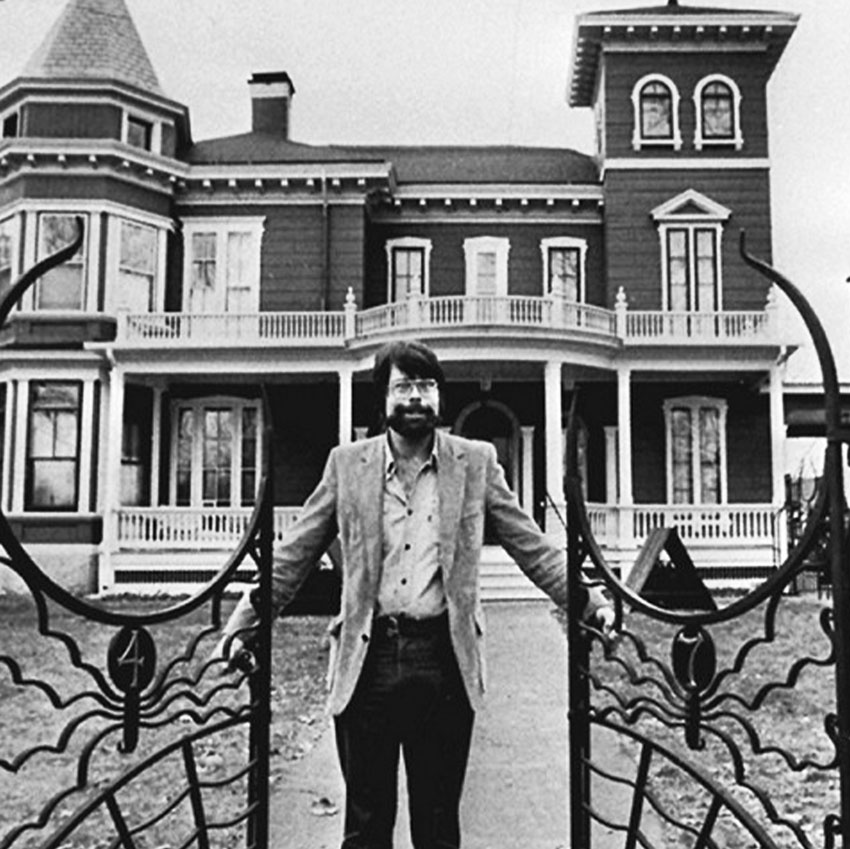
Stephen King’s first novel was published back in 1974, but since then his books never seem to leave the bestseller lists. And the “king of horror,” who once worked as an ordinary teacher, will turn 74 on September 21, 2021.
In this article, we’ll figure out why you should read Stephen King, even if his books weren’t on your reading list.
1. King’s Works Are Very Cinematic
The first Stephen King movie was released over 40 years ago, and since then, King’s books have been adapted almost every year. Of course, there are enough mediocre and frankly unsuccessful adaptations, but even today, the lists and ratings of the best films include movies based on Stephen King’s books, and in fact, there are more than a dozen adaptations on the way!
Hollywood producers are attracted by the record book sales, directors like well-written characters and twisted plots, and readers love the cinematic nature of his books. And while King almost always reveals the inner world of his characters by conveying their thoughts and feelings, he doesn’t spend much time on it and never distracts from the action. As a child, he loved movies much more than literature – perhaps that’s why reading his books is as easy and entertaining as watching movies or TV series. If you haven’t yet managed to distract your child from the screen with a book, try advising him Stephen King rather than something from the school curriculum.
2. King Has Something to Tell Teenagers
King’s childhood was not carefree and did not consist only of visiting cinemas and eating icecreams. On the contrary, he ran away from real life in the dark halls with fictional monsters because the reality was a lot scarier. First, his father abandoned the family, then King witnessed his friend being hit by a train, and after that, he had a couple of years of painful ear treatments. Since childhood, the boy looked at the world through glasses, but they have never been rose-colored. Stephen King suffered from poverty, alcoholism, drug addiction, creative failures, and crazy fans. When he writes about all of these things in his books, he certainly knows what he’s talking about.
King’s experience is worth listening to for everyone, especially young people. While any horror in his works often finds human embodiment, it’s not always worth taking literally. Perhaps, all these frightening metaphors of various threats, addictions, and weaknesses in an animated form only impress readers more.
3. King Knows Children Well and Often Writes About Them
After a rough childhood and adolescence and before succeeding in writing, King worked as a school teacher for some time. King has not forgotten his teaching job; instead, he has drawn invaluable experience, many ideas, and images from it. For example, it’s known that one of the characters of his book, Carrie, was copied not from his students but former classmates. They were two girls, one from an overly low-income family and the other from a highly religious family. After that, children and teenagers appeared in almost every King’s book: often as supporting characters, rarely villains, and sometimes protagonists. All the joys and problems of adolescence, such as school bullying, first love, difficulties with parents, are also described in his books.

Stephen almost always highlights children’s innocence and helplessness but still often gives teenagers some superpowers. For example, Carrie has telekinesis, Charlie McGee has pyrokinesis, and Danny Torrance has the gift of clairvoyance. Not surprisingly, when King himself became a parent, his characters also became young parents. But even now, when King is a longtime grandfather, he makes his teenage neighbor an assistant to old man Hodges in “Mr. Mercedes.” Even the success of the modern series “Stranger Things,” which borrows its theme and atmosphere from King’s universe, hangs on the shoulders of a few cool boys and one much cooler girl.
4. King Teaches the Reader the Right Values
Stephen teaches his readers the right values, but he does so casually and avoids overt moralizing. Probably all parents who are hiding books by the “king of horrors” from their children, this thought will seem strange but believe us, King is more likely to teach your child the good than the bad. After wading through scary and often gruesome scenes, the reader always comes up with simple and eternal truths about the all-conquering power of kindness, love, and friendship.
For instance, a teenager who has read “Carrie” is unlikely to bully weak peers like the book’s characters did because it didn’t end well for them. When King recalls those two classmates who were prototypes of Carrie, he does not say that he acted nice to them. On the contrary, he treated them like everyone else, and therefore the novel “Carrie” is his sincere apology and atonement for his sins. Even if this apology ends with gallons of blood, it’s still the framework of the genre:)
5. Stephen King is a Really Great Writer
Early in his career, King could only boast of talent, but he has achieved the heights of true mastery in the twenty-first century. His villains frighten, his jokes make you laugh, his touching scenes squeeze out a tear, and his scary ones make you listen to every rustle. For example, now King often uses the technique of repetition, which means he writes the last sentence of a chapter and then writes it or some part of it again, enhancing the effect. It looks simple, but it does work.
For a long time, severe literary critics did not recognize King’s merits; they regarded him as a famous but second-rate novelist, whose works can be enjoyed only by bored passengers on subway trains and airplanes. Of course, Stephen King’s books can be recommended to those who choose what to read on the train, but it does not mean that his books are poorly written or devoid of meaning.
Stephen King is good at the details. Few contemporary writers can so fully convey a character’s personality with a single gesture or word. Or make the reader believe in the reality of what’s going on by mentioning a famous show or brand. Or create the right atmosphere so precisely – some of King’s fictional cities seem more authentic than the real ones. But that’s why he’s a master, of course. That’s exactly what he’s a master at.






